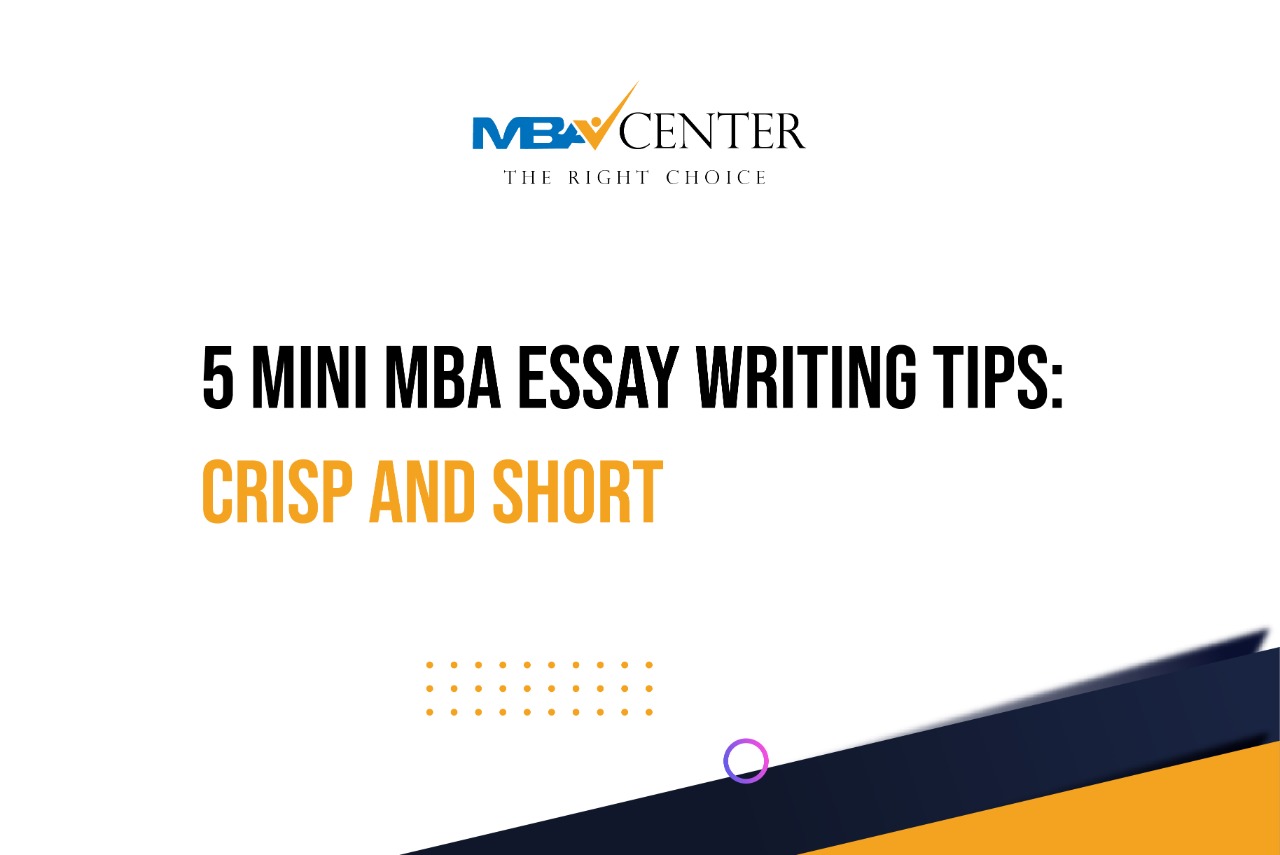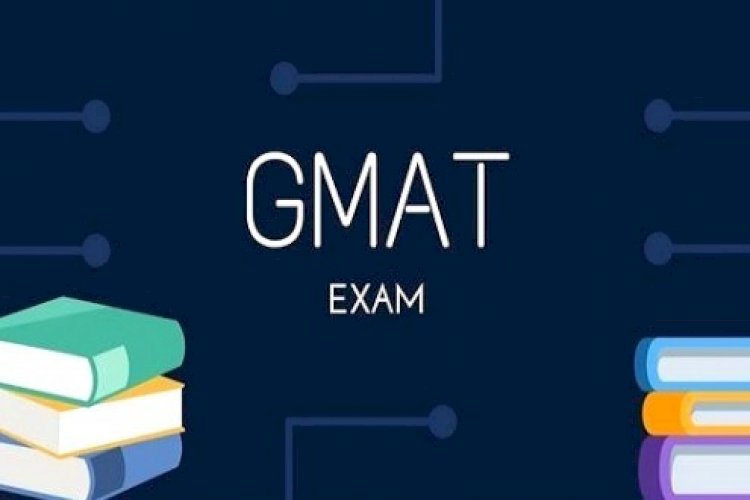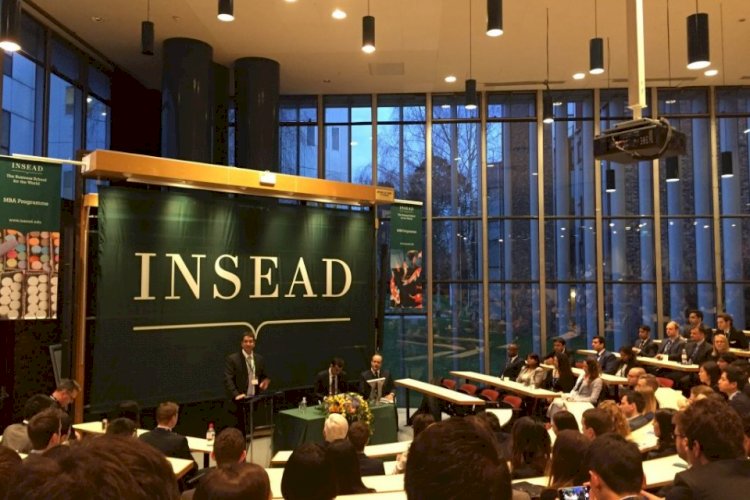
Crafting well-written essays is both challenging and rewarding. While advice and guidance are available from many sources, I want you you to hear from an expert who has evaluated many essays. Below, I offer insight to help you craft your responses to our 2024–2025 essays.
Essay Question #1: "Why are you pursuing an MBA and why now? How will the distinct Tuck MBA contribute to achieving your goals and aspirations?"
This essay maps to Tuck’s "Aware" criterion. Before reflecting and writing, review what being aware, ambitious, and purposeful means at Tuck. Essay 1 explores your "vision for the future" aspect of Awareness. Tuck wants to hear about your plan for the path forward and how the Tuck MBA will help you reach your aspirations.
Consider devoting roughly half the essay to why an MBA is right for you and the other half to why Tuck is right. For the first part, explain why, given the various paths for growth and development, you've chosen to pursue the MBA degree and seek it at this stage of your professional development. Whether you come from a professional or personal background where pursuing an MBA is a typical step toward your goals or whether it's less common, demonstrate that you've given real thought to the value of an MBA for you. Show that you understand why this is the right time to step away from working and towards an MBA. An MBA can add value across various professional pursuits, and we hope you can thoughtfully express how an MBA adds value to yours. If you already hold a graduate degree similar to an MBA, be sure to address why you need a Tuck MBA in addition to what you already have.
For the second part, explain why you are applying to Tuck. There is a distinction between loving Tuck and knowing Tuck. Show clarity and Awareness about how Tuck uniquely advances you toward your goals. That requires aligning what Tuck offers with what you want. The most vital essays are ones where the reader cannot simply replace the word "Tuck" with any other school name without the essay losing its meaning. Whether it is aspects of Tuck's curricular or programmatic offerings or the uniquely supportive community and alums network, help us understand what Tuck speaks to you and why it will help you achieve your aspirations.
Sometimes, candidates include the names of all the Tuckies they have connected with. Please continue to seek out members of our community to learn about the Tuck experience, but rather than focusing on who you have spoken with in your essay, reflect directly on what you have learned from those conversations and how it relates to your goals.
Since you've stated your short- and long-term goals elsewhere, you don't need to restate them here. We read each application, so the person reading your application has already seen your goals before reading your essay. Some of you may use this essay to elaborate on goals, while others might make your case for an MBA and Tuck without explicitly referencing your goals. Either way, consider this essay a supplement to your goals rather than a recitation.
Essay Question #2: "Tell us who you are. How have your values and experiences shaped your identity and character? How will your background contribute to the diverse Tuck culture and community?"
Essay 2 explores the aspect of Awareness and understanding of yourself. As you approach it, think about the interplay between individuality and community. Some of you have asked us whether your response should show that you "fit in" with Tuck or whether it should highlight that you are different and distinct. They're not mutually exclusive. Our extraordinary community is a tapestry of the collective individuals therein who choose to engage consistently. We want you to confidently bring your unique personal self to Tuck, including your strengths and growth areas.
This prompt is an invitation to articulate your individuality. In alignment with Tuck's core values of being personal, connected, and transformative, Tuck strives to get to know their candidates well, and this is another deliberate step to learn more about you. My favorite aspect of this question is that there's no one correct answer or even a right category of answers. Tuck is expecting responses that are as diverse and wide-ranging as our students.
You could define who you are most strongly through your professional experiences and aspirations. Your sense of self is rooted in your life story and may have nothing to do with your professional work. A community of importance, a culture, specific relationships, challenges overcome, or personal values shape who you are. The heart of this question is about your identity, and the strongest responses will reveal the clarity and depth of your reflection. Your answer is not limited to describing a single experience in your life. Instead, if applicable, feel free to include multiple aspects of your background that have come together to shape who you are. Applicants sometimes ask me how to differentiate themselves from an industry heavily represented in the pool. This is a great place to do that! You are so much more than a job title. Use this space to tell us about the real you, things Tuck couldn't otherwise know just by looking at your resume.
Finally, Tuck is interested in hearing about the person who will show up at Tuck and what you bring to the Tuck fabric rather than what you will do here. Some of you may name aspects of Tuck that you will add explicitly. That's okay, but the true heart of this essay is your individuality rather than a list of classes and clubs of interest. A strong essay does not necessarily have to mention Tuck; you can convey who you are in ways that implicitly and powerfully illuminate what you bring.
Essay Question #3: "Describe a time you meaningfully contributed to someone else's sense of inclusion in your professional or personal community."
This essay directly relates to Tuck’s "Encouraging" criterion, so I suggest that you review what it means at Tuck to be encouraging, collaborative, and empathetic. Tuck is excited to learn how you empathize with and support others.
Tuck honors diversity in all forms, welcomes each person as they are, and provides the spaces and opportunities to engage in respectful, meaningful, and growth-oriented discussion and debate. Not every student's journey to Tuck follows the same path, but the community embraces everyone. With this essay, Tuck is looking for how you have actively welcomed others to a new experience or place and encouraged them to join in or helped them belong.
Unlike in essay 2, here Tuck asks you to tell one specific, discrete story rather than offer general reflections or a collection of stories. The 300-word count is brief, so use good judgment about the level of detail to provide. Give enough context to set the stakes while leaving yourself enough space to focus on what you did and what outcome you achieved. Tell a story focusing on your engagement with another person or a tiny group, conveying the richness and depth of interpersonal interactions. Here, too, we expect a breadth of responses that are as diverse as the fabric of Tuck. Your story can be personal or professional. What matters most is the depth of experience and its meaning to you and to those affected by your actions.
Go beyond a simple tactical description of teamwork or an example of inviting another to join a group or community. Tuck is interested in the interpersonal relationships you built, the personal investment you made, and the impact you had. We hope your interactions and empathy are not routine, common, or expected. A defining quality of our "Encouraging" criterion is that these characteristics occur "even when not convenient or easy." Your example should go beyond doing something that would be expected of anyone in your situation or role.
A Note on Word Limits
Three hundred words is a little space, and it is sometimes harder to write a shorter essay than a longer one. The ability to concisely make your point is a valuable skill ; the word limits will encourage you to distill your answers into what is truly most important to you. Please refrain from using tricks, like stringing together multiple words with hyphens, to get around the word limits. This would undermine the word limits, show a lack of Awareness, and be viewed negatively by the Admissions Committee.
Happy writing!
 MBA Center Global
MBA Center Global 























